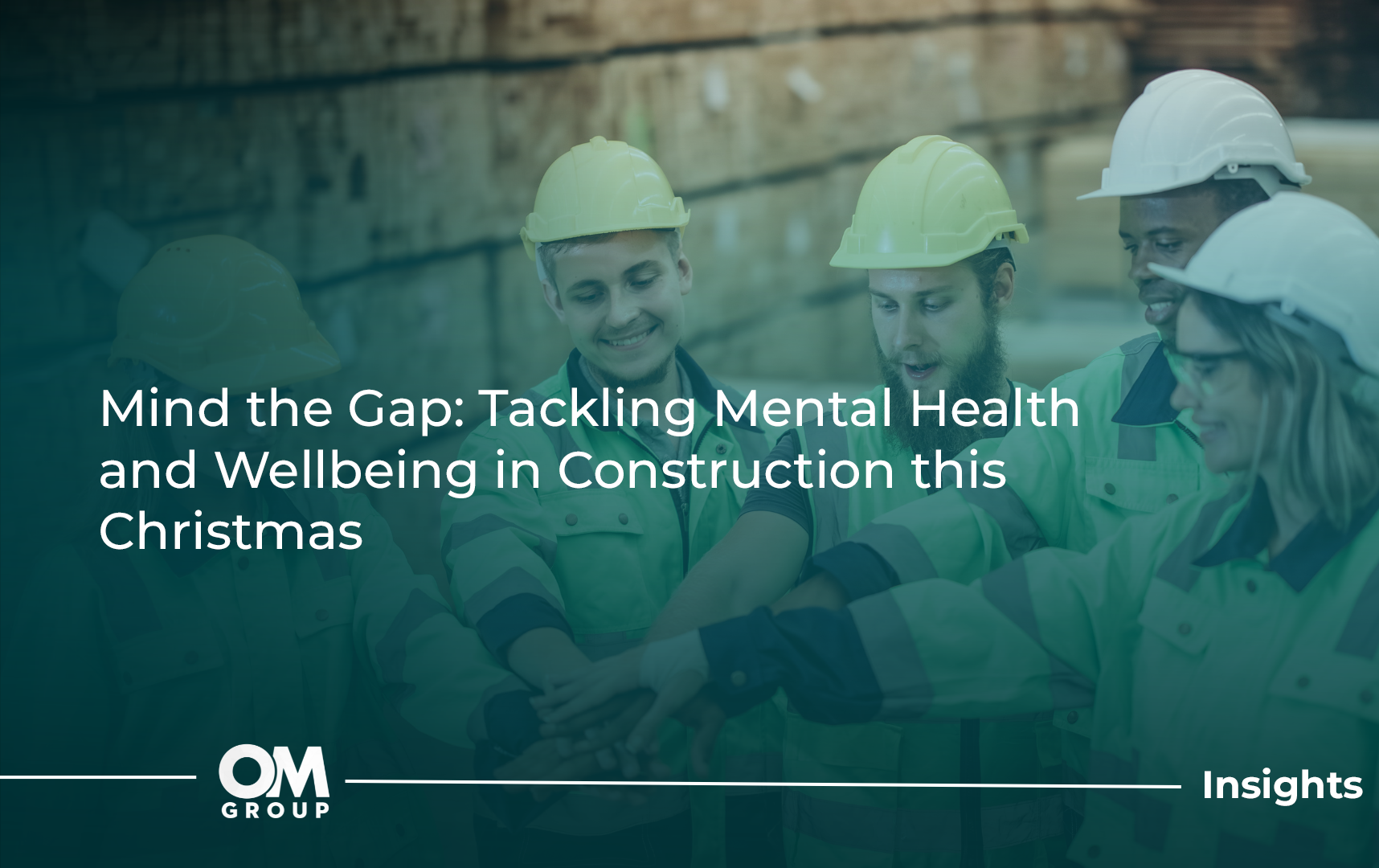Home | Knowledge Hub | News & Insights |
Mind the Gap: Tackling Mental Health and Wellbeing in Construction this Christmas
Joe Swindells Chartered MCIPD | 19th December 2024 | 4 mins
As the Christmas break approaches, take some time to consider the hidden struggles faced by many in construction – and how we can support each other towards a brighter 2025.
The Silent Crisis
It’s mid-December- a time for joy, family, and celebration. Yet, for many in the construction industry, this season highlights the cracks that too often go unnoticed. Financial pressures, long hours, working away from home, and the added expectation to ‘get everything done before Christmas’ can weigh heavily on our mental health.
A recent Sky News report revealed a stark reality: construction workers are four times more likely to die by suicide than the national average. Over the last decade, an estimated 7,000 lives have been lost. That’s 700 people every year – almost two lives every day.
This crisis isn’t just about numbers; it’s about people. The colleague you joked with last week, the manager trying to meet impossible deadlines, the worker far from home missing their child’s Christmas play.
So, why is mental health such a problem in construction?
The Factors Behind the Crisis
The construction industry brings unique challenges that impact mental wellbeing:
- Financial Strain: Many workers face job insecurity, seasonal work, or live pay-cheque to pay-cheque. Add Christmas expenses, and the pressure can become overwhelming.
- Working Away from Home: For those spending weeks or months away on projects, the festive season can amplify feelings of loneliness and isolation.
- Site Culture: A ‘tough it out’ mentality still prevails on many sites, discouraging workers from speaking up about their struggles.
- Demanding Conditions: Long hours, physical strain, and the relentless push to meet deadlines take their toll, often leaving little time for self-care.
The consequences are devastating, but they don’t have to be.
Spotting the Signs
For managers, colleagues, and even family members, recognising when someone is struggling can make all the difference. Here are a few signs to look out for:
- Changes in Behaviour: Withdrawal from conversations, irritability, or uncharacteristic quietness.
- Decline in Performance: Missed deadlines, accidents, or lack of focus on tasks.
- Physical Symptoms: Fatigue, weight loss or gain, or visible stress.
- Talk of Hopelessness: Comments that hint at despair or a lack of purpose.
How to Approach and Support
Talking about mental health can feel daunting, but the right approach can open doors:
1. Be Human: Start with a simple, non-judgemental question like, “How are you doing?” and really listen.
2. Choose the Right Setting: A private, relaxed environment helps people feel safe to share.
3. Show Empathy: Avoid jumping in with solutions – just being there and showing you care can mean a lot.
4. Signpost Help: Offer information about professional support services, whether it’s counselling, helplines, or workplace initiatives.
Resources for Support
If you or someone you know is struggling, here are some places to turn:
- Samaritans: Free support 24/7 at 116 123 or email jo@samaritans.org.
- Mates in Mind: A construction-focused charity providing guidance and resources.
- Mind: A mental health charity offering support for individuals and advice for workplaces.
- Employers: Many companies now offer Employee Assistance Programs (EAPs) with access to counselling services.
For managers, investing in Mental Health First Aid and Awareness training or management and leadership development can give you the tools to support your team better. At The OM Group, we work with leaders to build people skills and resilience – because the first step to supporting others is knowing how to care for yourself. Getting the everyday management basics right is a huge step in the right direction. Whether that’s through a qualification, or some bespoke training – it all helps to close that gap.
A Positive Outlook for 2025
While this subject is serious, there is hope. As an industry, we’re beginning to break down the stigma surrounding mental health. Conversations are happening, awareness is growing, and support is improving.
As we approach Christmas, let’s remember that the festive season doesn’t have to be perfect. It’s okay to take a moment, reflect, and look forward to what lies ahead. A smile, a kind word, or a listening ear can make all the difference.
Together, we can ensure the people who build our future feel supported and valued – not just this Christmas, but every day of the year.
If this article resonated with you, feel free to share it. Let’s keep the conversation going, build awareness, and, most importantly, look out for one another.


